Four Wives

Brief Synopsis
Cast & Crew
Michael Curtiz
Priscilla Lane
Rosemary Lane
Lola Lane
Gale Page
Claude Rains
Film Details
Technical Specs

Synopsis
Joy reigns in the Lemp household as the family eagerly awaits the return of daughter Ann's fiancé, composer Felix Deitz, from his concert tour and the results of daughter Emma Lemp Talbot's visit to the doctor. The sisters are bitterly disappointed, however, when they learn that Emma is not pregnant and never will be, while Ann is carrying the baby of her late husband, Mickey Borden. The knowledge that she is carrying Mickey's child awakens Ann's memories of their brief married life, and she becomes obsessed with thoughts of Mickey's bitter failure in life. Especially haunting is the vision of Mickey playing his own composition, the one with no beginning or end, only a middle. Ann's feelings of guilt drive a wedge into her relationship with Felix, prompting her sister Kay to ask the doctor, Clinton Forrest, Jr. for help. Clinton advises Ann to get on with her life, and she decides to elope with Felix rather than enjoy the big wedding that she and Mickey were denied. At their wedding dinner, Felix begins to work on Mickey's unfinished composition, and sister Thea Lemp Crowley announces that she is planning to adopt a baby. On the day that Thea brings the new baby home, however, she learns that she is pregnant and turns the infant over to Emma and her husband Ernest. Meanwhile, Ann insists that Felix go on his concert tour, and after a heated quarrel, Felix leaves the house. Ann runs after him to apologize, but she is too late, and as Felix's train pulls out of the station, she collapses in premature labor. Felix returns to save the baby's life with a blood transfusion, but then goes back to New York. As Ann recovers in her hospital bed, she hears the broadcast of Felix's first concert coming from New York. It is Mickey's composition, with a beginning and end by Felix. The piece receives a tremendous ovation, bringing to Mickey the acclaim that had eluded him in life. Mickey's success alleviates Ann's guilt, and all ends happily as Ann and Felix reconcile, Thea gives birth to twin girls and Kay marries Clint.

Director

Michael Curtiz
Cast

Priscilla Lane

Rosemary Lane

Lola Lane

Gale Page

Claude Rains

Jeffrey Lynn

Eddie Albert

May Robson
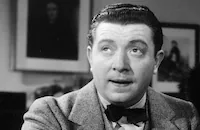
Frank Mchugh

Dick Foran
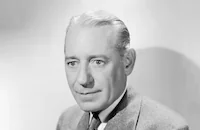
Henry O'neill
Vera Lewis

John Qualen

John Garfield
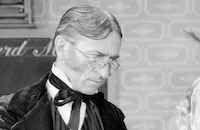
Olin Howland
Ruth Tobey
Pat West
Ruth Robinson
Claire Dubrey
Isabel Withers
Dora Clement
Betty Farrington
Michael Conroy
Dennie Jackson
Arline Willden

Wilfred Lucas
Claude Wisberg
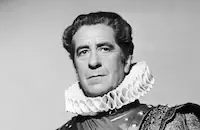
Robert Warwick

George Reeves
Wendell Niles
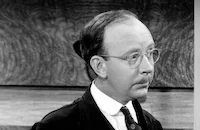
Hobart Cavanaugh
Reverend Neal Dodd
Lottie Williams
Dorothy Vernon
Loia Cheaney
Crew
Henry Blanke
Lenore Coffee
Ralph Dawson
Julius J. Epstein
Philip G. Epstein
Leo F. Forbstein
Hugh Friedhofer
Oliver S. Garretson
Jo Graham
Maurice Hanline
Byron Haskins
Ray Heindorf
James Wong Howe
John Hughes
Frank Mattison
Sol Polito
Max Rabinowitz
Howard Shoup
Sherry Shourds
Max Steiner
Jack L. Warner
Perc Westmore

Film Details
Technical Specs

Articles
Four Wives
The ending of Four Daughters, however, precluded a sequel including Garfield, so Warner Bros. adapted a play with similar characters -- a family of four sisters and the drifter one sister falls for -- and brought back most of the same cast and the same director, Michael Curtiz, for Daughters Courageous (1939). That film also received good reviews. Among his other films that year, Garfield and Lane co-starred in Dust Be My Destiny, with Garfield playing another rebellious loner, and Lane as the good girl he loves. Garfield attempted to display his versatility, but was miscast as Mexican general Porfirio Diaz in the historical epic Juarez. Between September 1938 and August 1939, Garfield worked non-stop six days a week. This grueling schedule only came to an end when he went on suspension for refusing to make any more inferior movies.
Meanwhile, screenwriters Julius and Philip Epstein found a way to include Garfield in a sequel to Four Daughters, and at the end of 1939, Warner Bros. released Four Wives, again directed by Curtiz, and with most of the same cast as the original. The Lemp sisters are now wives, or about to become wives, and are looking forward to motherhood. Ann has recovered from the loss of her husband, Mickey, and is engaged to fellow musician Felix, again played by Jeffrey Lynn. Then she discovers she's pregnant with Mickey's child. The filmmakers included flashbacks using scenes from Four Daughters, with Garfield as the ghost of Mickey, giving his blessing to Ann's new marriage. Four Wives didn't do as well overseas as its predecessor, but domestically it performed well at the box office. Surprisingly, even the critics liked it. "It is a singularly happy film, well written, well directed and well played," wrote Frank Nugent in the New York Times. "And," he added presciently, "it reconciles us tranquilly to the vista it has opened of a 'Four Mothers'... 'Four Grandmothers,' and possibly a 'Four Granddaughters.'" Sure enough, another sequel, titled Four Mothers, appeared in 1941. But the magic was gone. A new director, William Keighley, and a new writer, Stephen Morehouse Avery, were unable to bring anything fresh to the series, and Four Mothers was the last of the Lemp sisters.
The Lane sisters' careers also faded in the 1940s. Priscilla had the most success, appearing in Alfred Hitchcock's Saboteur (1942) and co-starring with Cary Grant in Arsenic and Old Lace (1944). But by the late 1940s, all three Lanes, as well as Gale Page, had retired from the screen. John Garfield continued his rebellious ways on and off screen. He left Warner Bros. in the mid-1940s, and started his own production company. But he became a victim of blacklisting in the late 1940s, after he refused to name communist acquaintances to the House Un-American Activities Committee. Garfield died of a heart attack in 1952, at the age of 39.
Director: Michael Curtiz
Producer: Hal B. Wallis
Screenplay: Julius J. and Philip G. Epstein, Maurice Hanline, suggested by the novel, Sister Act, by Fannie Hurst
Cinematography: Sol Polito
Editor: Ralph Dawson
Art Direction: John Hughes
Music: Max Steiner
Cast: Claude Rains (Adam Lemp), Priscilla Lane (Ann Lemp Dietz), Rosemary Lane (Kay Lemp), Lola Lane (Thea Lemp Crowley), Gale Page (Emma Lemp Talbot), Jeffrey Lynn (Felix Dietz), John Garfield (Mickey Borden), Eddie Albert (Dr. Clinton Forrest, Jr.), May Robson (Aunt Etta).
BW-99m. Closed captioning.
by Margarita Landazuri

Four Wives
Eddie Albert (1906-2005)
The son of a real estate agent, Albert was born Edward Albert Heimberger in Rock Island, Ill., on April 22, 1906. His family relocated to Minneapolis when he was still an infant. Long entralled by theatre, he studied drama at the University of Minnesota. After years of developing his acting chops in touring companies, summer stock and a stint with a Mexican circus, he signed a contract with Warner Bros. and made his film debut in Brother Rat (1938). Although hardly a stellar early film career, he made some pleasant B-pictures, playing slap happy youths in Brother Rat and a Baby (1940), and The Wagons Roll at Night (1941).
His career was interrupted for military service for World War II, and after his stint (1942-45), he came back and developed a stronger, more mature screen image: Smash-Up: The Story of a Woman (1947); Carrie (1952); his Oscar® nominated turn as the Bohemian photographer friend of Gregory Peck in Roman Holiday (1953); a charming Ali Hakim in Oklahoma (1955); and to many critics, his finest hour as an actor, when he was cast unnervingly against type as a cowardly military officer whose lack of commitment to his troops results in their deaths in Attack! (1956).
As he settled into middle-age, Albert discovered belated fame when he made the move to Hooterville. For six seasons (1965-71), television viewers loved Eddie Albert as Oliver Wendal Douglas, the bemused city slicker who, along with his charming wife Lisa (Eva Gabor), takes a chance on buying a farm in the country and dealing with all the strange characters that come along their way. Of course, I'm talking about Green Acres. If he did nothing else, Alberts proved he could be a stalwart straight man in the most inane situations, and pull it off with grace.
After the run of Green Acres, Albert found two of his best roles in the late stages of his career that once again cast him against his genial, good-natured persona: the fiercly overprotective father of Cybill Shepherd in The Heartbreak Kid (1972), for which he earned his second Oscar® nomination; and the sadistic warden in Robert Aldrich's raucous gridiron comedy The Longest Yard (1974). Soon, Albert was in demand again, and he had another hit series, playing a retired police officer who partners with a retired con artist (Robert Wagner) to form a detective agency in Switch (1975-78).
The good roles slowed down slightly by the dawn of the '80s, both film: The Concorde: Airport '79 (1979), How to Beat the High Co$t of Living (1980), Take This Job and Shove It (1981); and television: Highway to Heaven, Murder, She Wrote, Thirtysomething, offered him little in the way of expansion. Yet, Albert spent his golden years in a most admirable fashion, he became something of activist for world health and pollution issues throughout the latter stages of his life. It is widely acknowledged that International Earth Day (April 22) is honored on his birthday for his tireless work on environemental matters. Albert was married to famed hispanic actress Margo (1945-85) until her death, and is survived by his son, actor Edward Albert, a daughter, and two granddaughters.
by Michael T. Toole
Eddie Albert (1906-2005)
Quotes
Trivia
'Max Steiner' 's "Symphonie Moderne", written for the movie, was later expanded and published in 1941.
Notes
The working titles of this picture were Family Reunion, Family Affair, American Family and Sister Act. This picture was a sequel to Warner Bros. 1938 film Four Daughters. Production charts in Hollywood Reporter note that Fay Bainter was to cast in the picture, but her participation in the project is unconfirmed. The composition Symphonie Moderne, which Max Steiner wrote for this film, was later expanded and published. In 1941, William Keighley directed the Lane sisters in Four Mothers, which was also based on the Fannie Hurst story.















